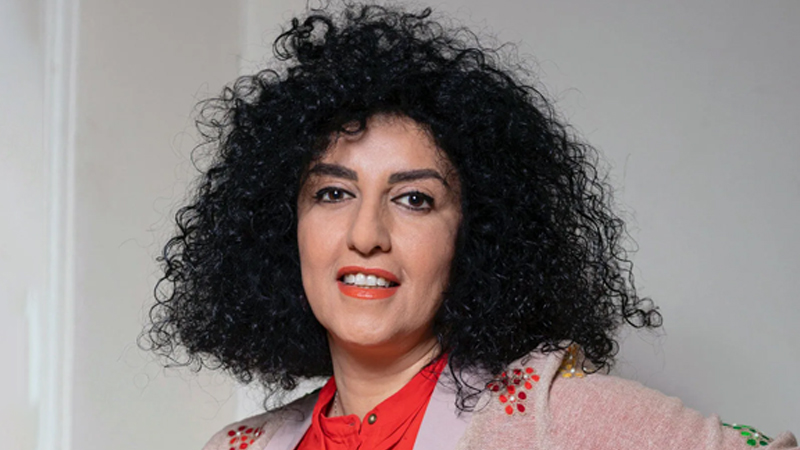Narges Mohammadi, the imprisoned Iranian Nobel Peace Prize laureate, has been handed another year in prison for her continued activism, her lawyer confirmed on Wednesday.
Mostafa Nili, representing Mohammadi, informed The Associated Press that his client was convicted on charges of spreading propaganda against the Iranian government. The additional sentence was imposed after Mohammadi called for a boycott of Iran’s recent parliamentary elections, corresponded with European lawmakers, and spoke out about the torture and sexual assault of another Iranian journalist and activist.
Currently held at Evin Prison, known for detaining political prisoners and those with Western connections, Mohammadi was already serving a 30-month sentence. An extra 15 months had been added to her term in January, but the Iranian government has not officially recognized this latest sentencing.
The verdict underscores the Iranian regime’s frustration with Mohammadi’s Nobel Peace Prize recognition last October, which she received for her relentless activism despite a long history of government persecution.
Mohammadi, 52, is the 19th woman and the second Iranian to be awarded the Nobel Peace Prize, following human rights advocate Shirin Ebadi in 2003. Her unwavering commitment to activism has seen her repeatedly arrested and imprisoned over the years.
In November, Mohammadi launched a hunger strike to protest the denial of medical care to her and other inmates and to object to Iran’s mandatory headscarf laws.
Her activism has been a catalyst for the widespread women-led protests ignited by the 2022 death of Mahsa Amini, a 22-year-old detained for allegedly wearing her headscarf improperly. Amini’s death while in police custody sparked one of the most significant challenges to Iran’s theocratic government in recent history.
For many observant Muslim women, the headscarf signifies piety and modesty. In Iran, however, the hijab has also become a political symbol, particularly since it was mandated following the 1979 Islamic Revolution. Despite holding jobs, academic roles, and government positions, Iranian women’s lives are strictly regulated, partly due to laws like the mandatory hijab.
Iran, along with Taliban-ruled Afghanistan, is one of the few countries enforcing the headscarf mandate. However, since Amini’s death, increasing numbers of Iranian women are choosing to forgo the hijab, despite a growing crackdown by authorities against them and businesses that serve them.











Leave a Reply